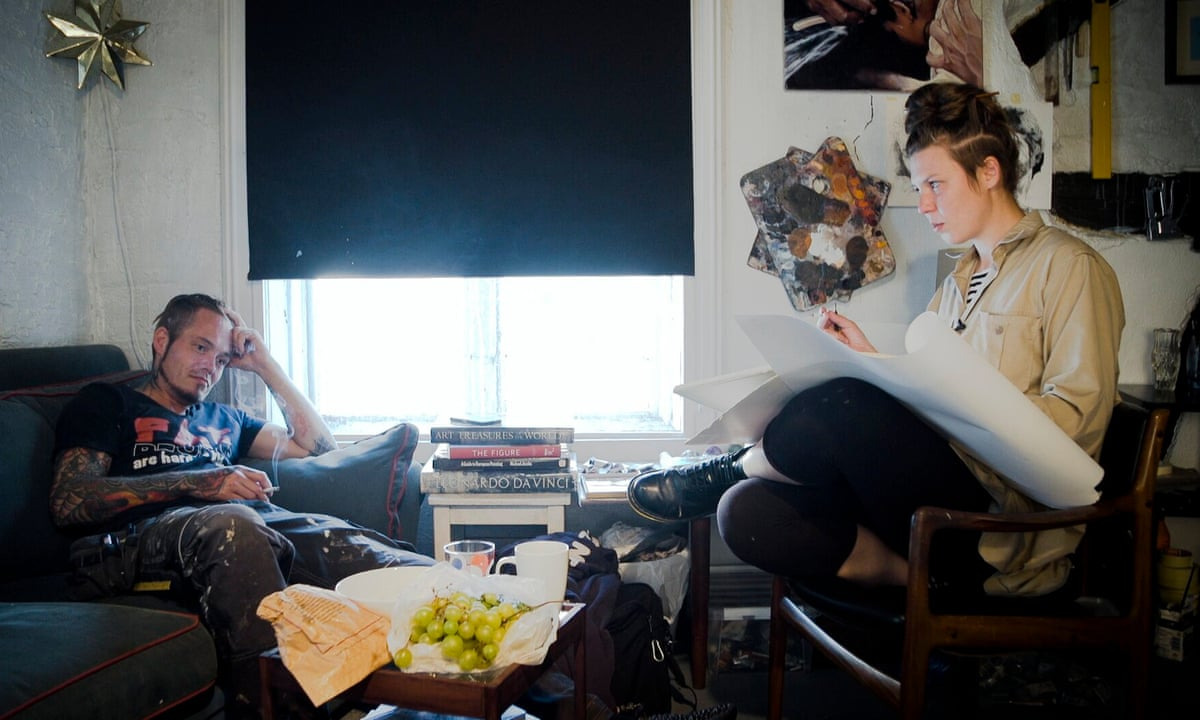Mein Vietnam
(Germany/Austria, 70 min.)
Dir. Tim Ellrich, Thi Hien Mai
Program: World Showcase
Thi Bay Nguyen and Trung Tam Mai have been living in Germany for nearly thirty years. However, one would hardly know it from watching Mein Vietnam. This unique documentary from Tim Ellrich and Thi Hien Mai offers a timely portrait of migrant experiences. The film observes the Vietnamese ex-pats as they make ends meet in Germany with hopes to retire eventually to their homeland. Nearly all the human drama of Mein Vietnam occurs in the couple’s modest public housing apartment. A fair portion of the film is also “screen time,” as we watch Bay and Tam communicate with friends and family back home via their laptops. The couple finds itself in a constant juggle between presence and absence with no clear place to call home.
Directors Ellrich and Mai, the latter being the daughter of the subjects, offer an intimate portrait of the couple’s daily toils. Through simple framing and a delicate pattern of work and domestic life, Mein Vietnam seamlessly inserts a viewer into the everyday experience of its two characters. It observes as they perform jobs as cleaners, tidying up homes and sanitizing workplaces. Their work is typical of many migrant labourers. The homes and offices are empty as Bay and Tam enter and exit these spaces without a trace, erasing all evidence of their presence aside from a spick and span environment. They’re hard workers and the physical labour doesn’t leave them with much time or energy to leave their apartment after a long day’s work.
Like many people nowadays, Bay and Tam spend their free time in front of screens. Skype dates and karaoke sessions keep them connected with their friends in Vietnam. Through cameras mounted in close proximity to the couple as they play out their lives through virtual connections, Mein Vietnam witnesses humour, tragedy, and heartbreak delivered through the bandwidth of the Internet. Bay loses a family member, while Tam finds himself unexpectedly occupied with a construction job after a typhoon destroys their home in Vietnam. Tam grumbles that every cent of their hard-earned labour goes overseas, while the cost of returning to their homeland keeps Bay at a remove from her family when they need one another most.
Tam demonstrates a stronger fidelity to Vietnam than his wife does. The film sees him voice repeated desires to return to their homeland. Bay, on the other hand, keeps in touch with her family, as any person might while living abroad. However, the film sees a revelation as she recognizes that her time spent at the computer screen means she spends less time building a home in Germany. Mein Vietnam observes as Bay makes long overdue efforts to learn the German language and make her adopted homeland feel like home. With a grandson on the way, she recognizes that she and Tam left Vietnam to build a better future for their family. That future is finally here, yet her husband becomes increasingly nostalgic for the old country as Bay tries to grow roots in her new home.
What emerges is a poignant portrait of migrants straddling two worlds. The film captures the challenges of maintaining ties in one nation while building a new life in another, as well as the personal, familial, and financial hardships that arise when one lives in constant limbo. The marriage between Bay and Tam, seemingly loving when the film begins, shows strain by the film’s end as each character comes to define “home” differently.
Additionally, the intimate glimpse of this family and their computer screens provides a unique perspective into stories of migration. Mein Vietnam, shot prior to the coronavirus pandemic, uncannily resembles a film made of and for this moment. Many of the experiences that people face amid COVID-19 lockdowns are everyday realities for migrants like Bay and Tam: the challenges of maintaining social lives over livestreams, sharing meals via Skype or Zoom, frustratingly negotiating work remotely, and witnessing the health declines and deaths of loved ones when one cannot visit them in hospital or mourn them in person.
Although the circumstances are obviously very different, the context of viewing Mein Vietnam in the age of coronavirus might lend it a tighter emotional punch. For some people, this experience of virtual connection has an end-point. For others, it’s an ongoing way of life. Mein Vietnam should inspire audiences to look at their neighbours a little differently—with empathy and compassion—after connecting with Bay and Tam through their screens.
Mein Vietnam screens at Hot Docs’ online festival.











